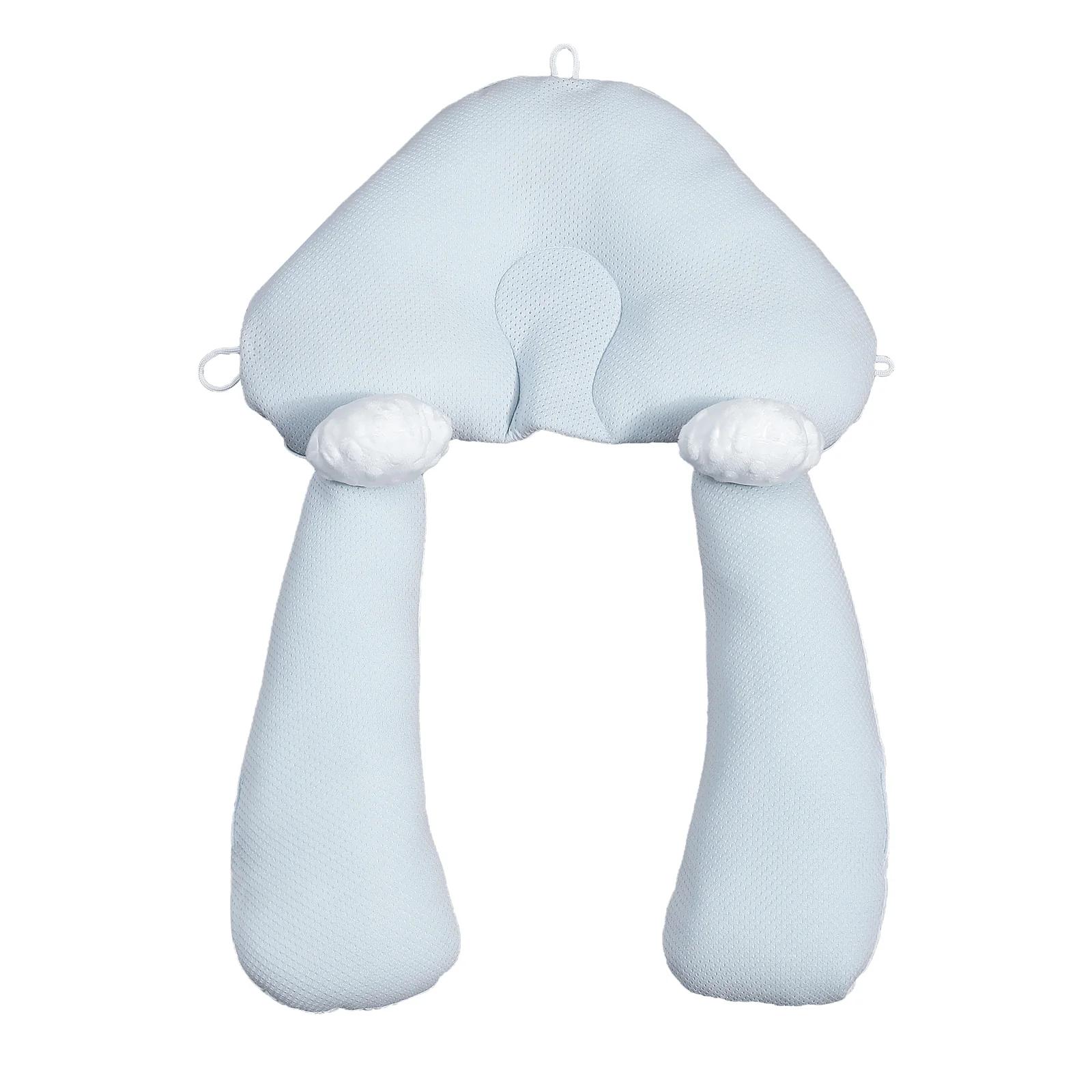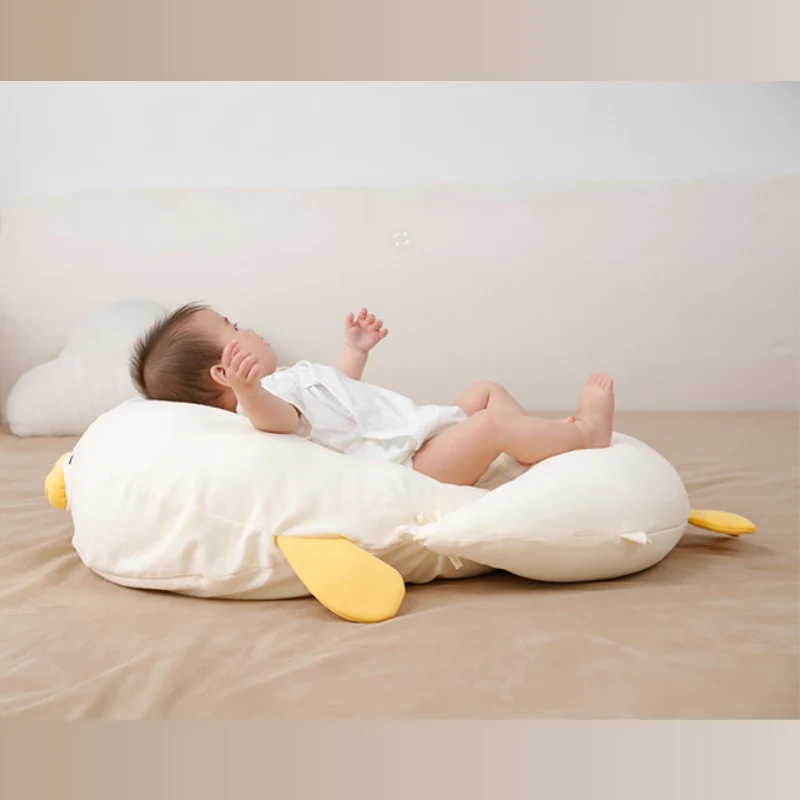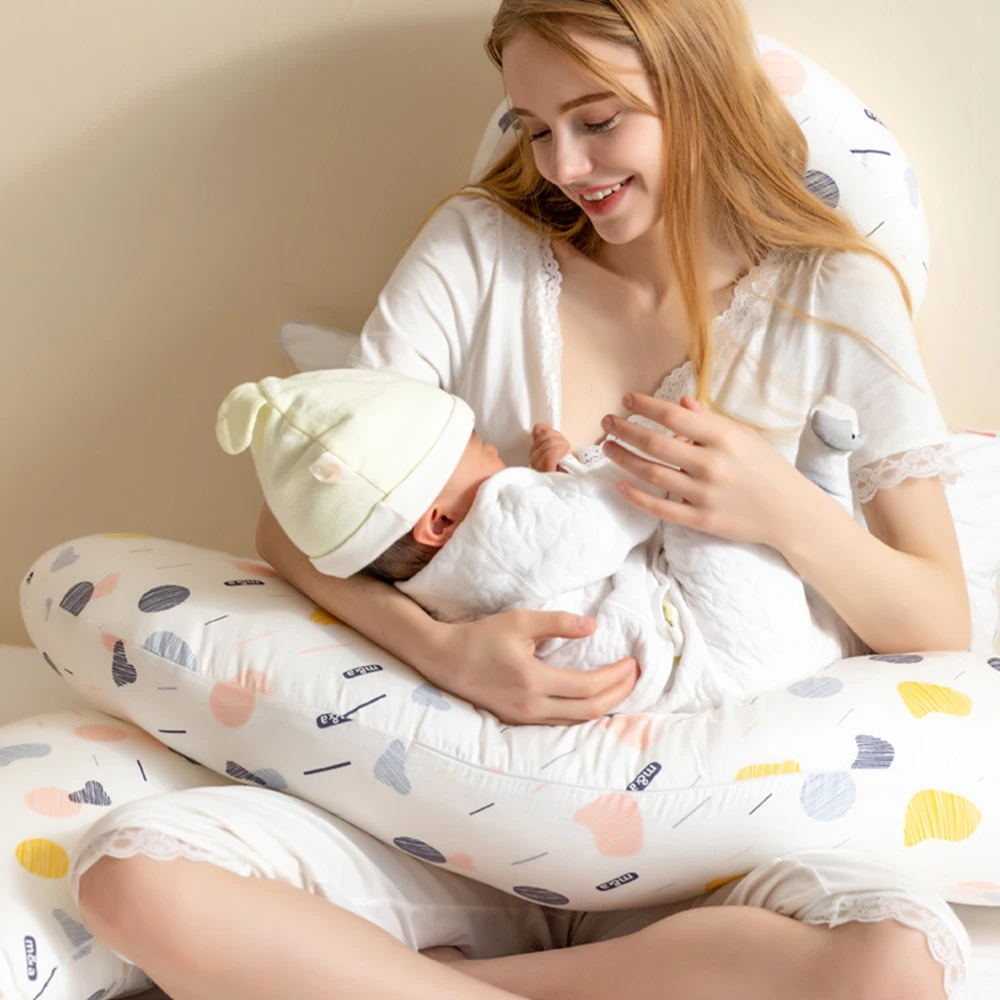Nursing Sleeping Pillow for Baby: Myth or Must-Have?
Many new parents seek out products to promote comfort and ease during feeding and sleep routines for their newborns. Nursing pillows are a common item on baby registries, but are they truly necessary for your baby’s sleep? This article explores the concept of nursing sleeping pillows and offers alternatives to ensure safe and comfortable sleep for your little one.
What is a Nursing Sleeping Pillow?
A nursing sleeping pillow is a specialized pillow designed to support a mother while breastfeeding or bottle-feeding her baby. These pillows typically come in a U-shaped or C-shaped form, cradling the mother’s body and offering support for her arms, back, and neck.
Potential Benefits of Nursing Sleeping Pillows
While not essential for breastfeeding or bottle-feeding, some parents find nursing pillows offer certain benefits:
-
Improved Comfort for Mom: The pillow can help alleviate strain on the arms, shoulders, and back during feeding sessions, especially for extended nursing periods.
-
Proper Positioning: The pillow may help position the baby at an optimal latching angle for more comfortable and efficient feeding.
-
Support for Multiple Feeding Styles: Some pillows can be adjusted to accommodate different feeding positions, such as cradle hold, cross-cradle hold, or football hold.
-
Postpartum Recovery: For mothers who have undergone a cesarean section, the pillow can provide extra support and comfort while holding a baby close.
Safety Concerns Regarding Nursing Sleeping Pillows and Baby Sleep
It’s important to note that the American Academy of Pediatrics (AAP) recommends against using pillows in a baby’s crib for the first year. This recommendation is due to safety concerns, including:
-
Increased Risk of SIDS (Sudden Infant Death Syndrome): Soft objects like pillows can increase the risk of SIDS by potentially obstructing a baby’s airway or causing them to re-breathe exhaled carbon dioxide.
-
Suffocation Risk: Newborns lack the head and neck control to easily move their heads if their airway becomes obstructed by a pillow.
-
Entrapment Risk: Loose bedding, including pillows, can pose an entrapment hazard. A baby could become entangled in the pillow or bedding, restricting their movement and breathing.
Therefore, using a nursing sleeping pillow for a baby’s sleep is not recommended due to these safety risks.
Alternatives to Promote Safe Sleep for Your Baby
Here are some safe and effective ways to ensure your baby’s comfort during sleep:
Firm Crib Mattress:
-
A firm, crib mattress specifically designed for infants provides the necessary support for a safe sleep surface.
Fitted Sheet Only:
-
Keep bedding simple and safe. Use a well-fitting sheet that is snug around the mattress to prevent loose fabric from bunching up or creating a suffocation hazard.
Swaddling (Optional):
-
Swaddling can be a comforting technique for newborns, mimicking the feeling of being held close. However, swaddling should be discontinued once your baby shows signs of rolling over.
Sleep Positioners (Use with Caution):
-
Wedge-shaped sleep positioners are marketed to prevent flat head syndrome (plagiocephaly). However, their safety and effectiveness are not definitively proven, and some studies suggest they might increase the risk of SIDS. Always consult your pediatrician before using any sleep positioner.
Nursing Pillows for Feeding – A Safe Option When Used Correctly
Nursing pillows can be a helpful tool for breastfeeding or bottle-feeding comfort, but their use should be limited to feeding sessions while the parent is awake and supervising the baby. Here are some safety tips to remember:
-
Do not use the nursing pillow for co-sleeping or bed-sharing. Bed-sharing is a known risk factor for SIDS.
-
After feeding, always transfer the baby to a firm, crib mattress for safe sleep.
Conclusion: Prioritizing Safety and Comfort
While nursing sleeping pillows may seem like a convenient option, a safe sleep environment is paramount for your newborn. The AAP’s recommendations against using pillows in a crib are for a valid reason. There are plenty of safe and effective alternatives to promote comfort during feeding and ensure safe sleep for your baby. If you have any questions or concerns about using a nursing pillow or your baby’s sleep environment, always consult your pediatrician.

